
Prescription Medications and DUI: When Legal Drugs Lead to Criminal Charges
You took your medication exactly as prescribed by your doctor this morning, the same routine you’ve followed for months without incident. Yet tonight, you find yourself staring at flashing police lights in your rearview mirror, about to face criminal charges that could derail your career, your finances, and your future.
How did following your doctor’s orders transform you from a law-abiding citizen into someone facing serious criminal penalties? The shocking reality is that thousands of Americans discover each year that legal prescription medications can land you in handcuffs just as easily as illegal drugs or alcohol.
The Hidden Epidemic of Prescription Drug DUIs
Prescription drug DUI cases represent one of the fastest-growing areas of impaired driving prosecutions. Unlike traditional drunk driving cases where blood alcohol content provides clear measurement standards, prescription drug impairment creates complex legal challenges that many drivers never see coming.
The statistics paint a troubling picture. Prescription drug-related DUI arrests have increased by over 300% in the past decade. This dramatic rise reflects both changing prescribing patterns and enhanced law enforcement training to recognize drug impairment beyond alcohol.
What makes these cases particularly devastating is that many defendants genuinely believed they were acting responsibly. They took prescribed medications as directed, often for legitimate medical conditions, never imagining that compliance with medical treatment could result in criminal prosecution.
The legal system doesn’t distinguish between illegal street drugs and legally prescribed medications when it comes to impaired driving charges. If prescription medications affect your ability to operate a vehicle safely, you face the same criminal penalties as someone driving under the influence of illegal substances.
Modern prescription medications affect millions of Americans daily. Pain medications, anxiety treatments, sleep aids, and even common allergy medications can impair driving ability in ways that many people don’t recognize or understand.
Understanding Prescription Drug Impairment
Prescription medications affect driving ability through various mechanisms that don’t always produce obvious signs of impairment. Unlike alcohol, which creates predictable impairment patterns, prescription drugs can affect cognitive function, reaction time, and motor skills in subtle but dangerous ways.
Central nervous system depressants, including benzodiazepines and sleep medications, slow brain function and reflexes. These medications can cause drowsiness, confusion, and delayed reaction times that persist long after patients feel “normal” again.
Opioid pain medications affect perception, judgment, and coordination. Even patients with legitimate prescriptions and developed tolerance can experience impairment that makes driving dangerous and legally problematic.
Stimulant medications, often prescribed for ADHD, can cause overconfidence, risk-taking behavior, and attention problems when not properly managed. While these medications help many people function normally, they can also create impairment issues in driving situations.
Even seemingly innocuous medications like antihistamines, muscle relaxants, and certain antidepressants can cause drowsiness, dizziness, or cognitive impairment that affects driving safety.
The timing of medication effects creates additional complications. Some medications cause peak impairment hours after consumption, while others have cumulative effects that build up over time.
Legal Complexities of Prescription DUI Cases
Prescription drug DUI prosecutions operate under different legal standards than traditional drunk driving cases. There’s no equivalent to the 0.08% blood alcohol standard for prescription medications, making these cases both more subjective and more defensible.
Prosecutors must prove impairment rather than simply demonstrating the presence of drugs in your system. This requirement creates opportunities for effective defense strategies that don’t exist in typical alcohol DUI cases.
Medical necessity defenses can apply in prescription drug cases. If you took medication as prescribed for a legitimate medical condition, this factor can influence both prosecution decisions and case outcomes.
A Philadelphia drug lawyer knows all-too-well the concept of tolerance becomes crucial in prescription drug cases. Long-term patients often develop tolerance that allows them to function normally on doses that would impair occasional users.
Timing issues frequently arise in prescription drug prosecutions. The relationship between when you took medication, when impairment occurred, and when testing happened can significantly affect case outcomes.
Laboratory testing for prescription drugs presents challenges that don’t exist with alcohol testing. Drug metabolism, individual variation, and testing delays can all create reasonable doubt about impairment at the time of driving.
Common Prescription Medications That Cause DUI Charges
Understanding which medications commonly lead to DUI charges helps patients make informed decisions about driving while taking prescribed treatments. The list includes many medications that people use daily without considering driving implications.
| Medication Category | Common Examples | Impairment Effects | DUI Risk Level |
| Benzodiazepines | Xanax, Valium, Ativan | Drowsiness, confusion, slow reflexes | Very High |
| Opioid Pain Relievers | OxyContin, Percocet, Morphine | Sedation, poor judgment, coordination issues | Very High |
| Sleep Medications | Ambien, Lunesta, Trazodone | Prolonged drowsiness, impaired memory | High |
| Muscle Relaxants | Flexeril, Soma, Baclofen | Dizziness, weakness, cognitive impairment | High |
| ADHD Stimulants | Adderall, Ritalin, Vyvanse | Overconfidence, attention problems | Medium |
| Antihistamines | Benadryl, Dramamine | Sedation, reduced alertness | Medium |
Benzodiazepines represent the highest-risk category for prescription drug DUIs. These anti-anxiety medications can cause significant impairment even when taken as prescribed, and their effects can last much longer than patients realize.
Opioid pain medications create similar high-risk situations. Even patients who have taken these medications for extended periods can experience impairment that affects driving safety.
Sleep medications pose particular dangers because their effects can persist into the following day. Many people wake up feeling alert but retain significant impairment from the previous night’s medication.
The Science Behind Prescription Drug Impairment
Modern research reveals how prescription medications affect driving ability in ways that aren’t immediately obvious to patients. Understanding these scientific principles helps explain why well-intentioned people face criminal charges.
Pharmacokinetics, the study of how drugs move through the body, shows that peak impairment doesn’t always coincide with peak blood levels. Some medications continue affecting cognitive function long after patients feel their effects have worn off.
Individual metabolism variations mean that identical doses of the same medication can produce vastly different impairment levels in different people. Age, weight, liver function, and genetic factors all influence how medications affect driving ability.
Drug interactions create additional impairment risks. Combining prescription medications, or mixing them with over-the-counter drugs or small amounts of alcohol, can produce unexpected impairment that exceeds the sum of individual effects.
Tolerance development allows some patients to function normally on doses that would severely impair occasional users. However, tolerance doesn’t provide complete protection against DUI charges if impairment can still be demonstrated.
Withdrawal effects can also cause impairment. Patients who miss doses or reduce medication levels may experience rebound effects that impair driving ability.
Defense Strategies for Prescription Drug DUI Cases
Prescription drug DUI cases offer unique defense opportunities that don’t exist in traditional drunk driving prosecutions. These defenses require thorough understanding of both medical and legal principles.
Medical necessity represents a primary defense strategy. If you took medication as prescribed for a legitimate medical condition, this demonstrates lack of intent to become impaired and can influence prosecution decisions.
Lack of knowledge defenses can apply when doctors fail to warn patients about driving risks. If your physician didn’t adequately explain impairment potential, this factor can support defense arguments.
Tolerance evidence can demonstrate that prescribed doses don’t impair regular users. Medical records showing long-term use at stable doses can counter prosecution impairment claims.
Timing challenges frequently benefit defendants in prescription drug cases. Proving exactly when impairment occurred, and relating it to driving behavior, creates hurdles for prosecutors.
Laboratory testing issues provide additional defense avenues. Chain of custody problems, testing delays, and interpretation challenges can create reasonable doubt about impairment evidence.
Rising blood level defenses can apply when drug levels increase after driving stops. Unlike alcohol, some medications continue absorbing into the bloodstream after consumption, potentially causing higher levels at testing time than during actual driving.
The Investigation Process in Prescription Drug Cases
Law enforcement approaches prescription drug DUI cases differently than traditional drunk driving investigations. Understanding these differences helps explain what happens during arrests and how cases develop.
Field sobriety tests designed for alcohol impairment may not accurately detect prescription drug impairment. The standardized tests used in most DUI stops weren’t developed or validated for drug impairment detection.
Drug Recognition Expert evaluations represent specialized training that some officers receive. These evaluations involve multiple tests and observations designed to identify specific categories of drug impairment.
Blood and urine testing for prescription drugs requires different procedures than alcohol testing. The complexity of drug testing creates more opportunities for errors and challenges.
Medical record subpoenas often become crucial in prescription drug cases. Prosecutors typically seek complete medical histories to understand prescribing patterns and patient behavior.
Expert witness testimony becomes more important in prescription drug cases. Both prosecution and defense often rely on pharmacologists, toxicologists, and medical experts to explain complex impairment issues.
Consequences Beyond Traditional DUI Penalties
Prescription drug DUI convictions carry all the standard DUI penalties, but they also create additional consequences that can be particularly severe for people with legitimate medical needs.
Professional licensing problems affect healthcare workers, commercial drivers, and other licensed professionals. Many licensing boards treat prescription drug DUIs more seriously than traditional drunk driving cases.
Employment consequences can be severe, particularly for people in safety-sensitive positions. Background checks increasingly flag prescription drug DUIs as red flags for potential impairment issues.
Insurance complications extend beyond standard DUI impacts. Some insurance companies specifically exclude coverage for prescription drug-related incidents.
Medical treatment disruption can occur when legal proceedings interfere with ongoing care. Some patients modify or discontinue necessary medications to avoid future legal problems.
Treatment stigma affects how healthcare providers view patients with prescription drug DUI histories. This stigma can compromise future medical care and pain management options.
Protecting Yourself While Taking Prescription Medications
Responsible medication management can prevent most prescription drug DUI charges while allowing patients to receive necessary medical treatment. These protective strategies require planning and communication with healthcare providers.
Medication timing adjustments can minimize driving impairment risks. Working with doctors to schedule doses around driving needs provides protection while maintaining treatment effectiveness.
Alternative transportation planning becomes essential during medication adjustments or when starting new treatments. Having backup transportation options prevents situations where impaired driving becomes tempting.
Doctor communication about driving risks should be explicit and documented. Patients should specifically ask about driving implications and request written guidance about safe driving practices.
Medication monitoring helps identify impairment that patients might not recognize. Family members or trusted friends can provide objective observations about medication effects on driving ability.
Emergency planning addresses situations where unexpected driving becomes necessary. Having contingency plans prevents impaired driving decisions during medical emergencies or unexpected situations.
The Legal Process for Prescription Drug DUI Cases
Prescription drug DUI cases follow similar legal procedures to traditional drunk driving prosecutions, but with important differences that affect case development and resolution strategies.
Initial court appearances often involve different bail considerations. Judges may be more concerned about ongoing medical needs and medication compliance than in traditional DUI cases.
Discovery processes become more complex due to medical record requirements. Both prosecution and defense must navigate patient privacy laws while gathering necessary evidence.
Expert witness preparation requires specialized knowledge of pharmacology and toxicology. These cases often become battles between competing scientific interpretations of impairment evidence.
Plea negotiation strategies may differ from traditional DUI cases. Prosecutors sometimes show more flexibility when legitimate medical needs are involved.
Trial preparation must address both legal and medical complexities. Juries need education about prescription drug impairment that goes beyond common knowledge about alcohol effects.
Building Your Defense Team
Prescription drug DUI cases require specialized legal expertise that combines criminal defense knowledge with understanding of medical and scientific issues. The right DUI Lawyer can make the difference between conviction and successful case resolution.
Experienced criminal defense attorneys who handle prescription drug cases understand the unique challenges and opportunities these prosecutions present. They know how to challenge impairment evidence and work with medical experts effectively.
Medical expert witnesses provide crucial testimony about medication effects, tolerance, and impairment. These experts can explain complex pharmacological concepts to judges and juries in understandable terms.
Pharmacologist consultants help defense teams understand drug interactions, metabolism, and timing issues. Their expertise can identify weaknesses in prosecution theories and support alternative explanations for evidence.
The investment in quality legal representation often pays for itself through reduced charges, alternative sentencing options, or case dismissals. The consequences of prescription drug DUI convictions are too severe to risk with inadequate representation.
At Brennan Law Offices, we understand that prescription drug DUI cases require a different approach than traditional drunk driving defense. Our experience with these complex cases allows us to identify defense opportunities and challenge prosecution evidence effectively. We work with qualified medical experts and understand the scientific issues that can make or break these cases.
If you’re facing prescription drug DUI charges, don’t let the complexity of your case intimidate you into accepting an unfavorable outcome. Contact our experienced defense team to discuss your options and begin building a defense strategy that protects your rights while addressing your legitimate medical needs.
Read More
0
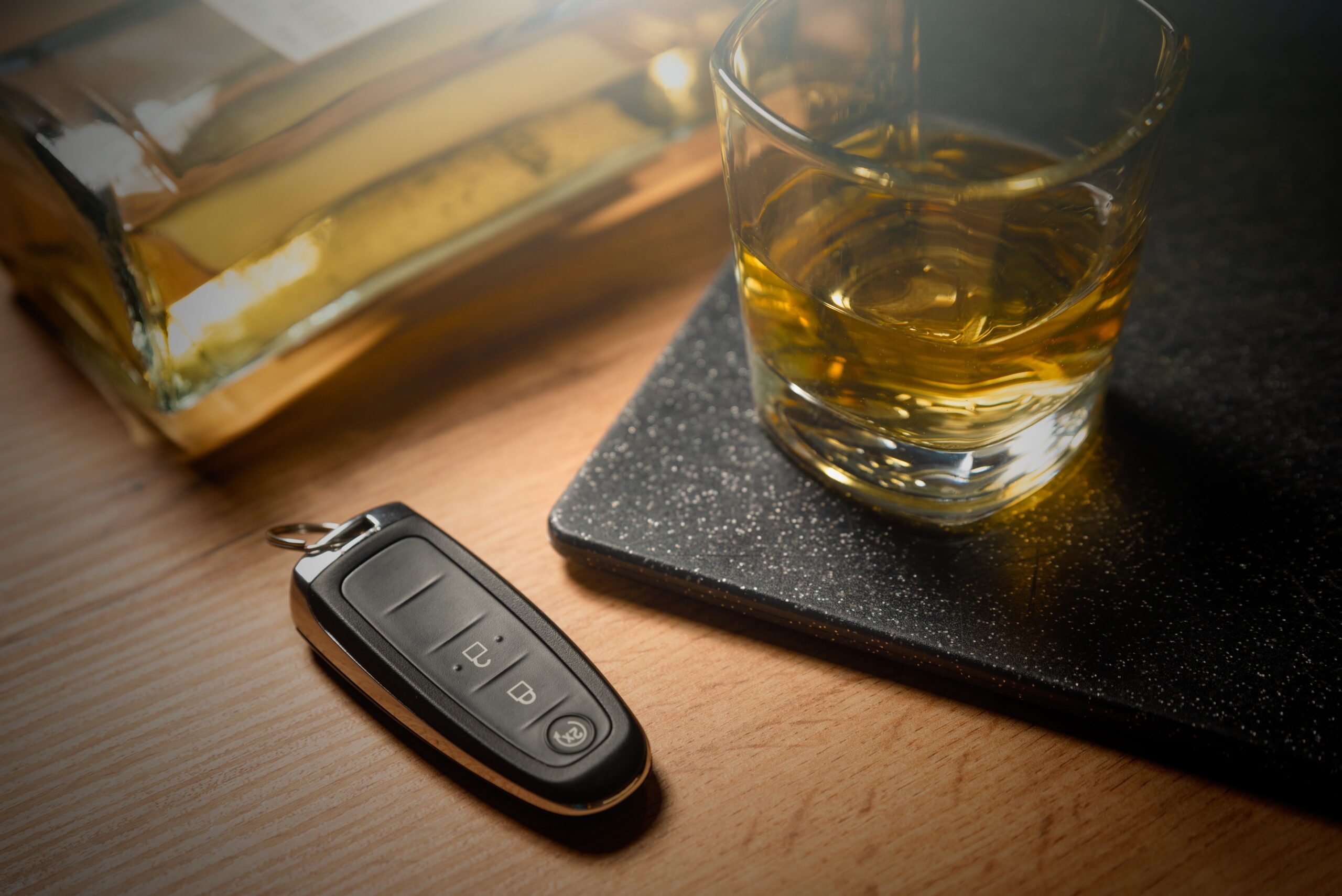
Can a Lawyer Erase a DUI from Your Record?
A DUI conviction can have long-lasting consequences, affecting your job, insurance premiums, and reputation. If you’re asking whether a lawyer can remove a DUI from your record, the answer depends on Pennsylvania law and the details of your case. Working with DUI lawyers in Philadelphia can help you explore legal options to minimize the impact of a DUI.
Understanding DUI Records in Pennsylvania
In Pennsylvania, a conviction for DUI appears on both your driving record and your criminal record. Your driving record, maintained by the Pennsylvania Department of Transportation (PennDOT), can result in license suspension and increased insurance premiums. Your criminal record, which is accessible to employers and law enforcement, can affect employment, housing, and professional licensure.
A DUI conviction will not automatically go away with time. However, legal options are available to limit the impact. Retaining an attorney who specializes in DUI matters is important in deciding on the correct course of action.
Can a Lawyer Erase a DUI from Your Record?
A lawyer cannot make a DUI conviction vanish completely, but certain legal strategies can help minimize its long-term consequences.
Expungement in Pennsylvania
Expungement removes a DUI from your criminal record, but Pennsylvania has strict eligibility rules. A DUI conviction cannot be expunged unless:
- You were accepted into and successfully completed the Accelerated Rehabilitative Disposition (ARD) program.
- You are 70 years old and have been free of arrests or prosecutions for ten years.
- The conviction was for a summary offense and you have remained arrest-free for five years.
Expungement does not remove a DUI from your driving record, which means insurance companies and PennDOT may still have access to the information. However, it does prevent most employers and landlords from seeing it in background checks.
Limited Access Petitions
If you do not qualify for expungement, you may qualify for a limited access petition. This closes your DUI record from most public access, including employers and landlords, although law enforcement and certain agencies may still see it. Limited access petitions are available for certain misdemeanor offenses, including certain DUI offenses, if you have completed all sentencing and have been arrest-free.
Seeking a Charge Reduction
An experienced DUI lawyer can negotiate a reduction of your DUI charge to a lower offense, say reckless driving. A lower offense has less long-term consequences and may be easier to seal or expunge in the future. This strategy depends on the details of your case, including your blood alcohol content (BAC), prior record, and mitigating circumstances.
Consequences of a DUI Beyond Your Record
Even if your DUI is expunged or sealed, it can still affect certain aspects of your life.
Employment and Background Checks
Most private employers will not see an expunged or sealed DUI, but government jobs, law enforcement, and certain regulated industries may still have access. Professional licensing boards may also consider past DUI convictions when reviewing applications.
Insurance Rates
DUI charges remain on your Pennsylvania driving record for at least 10 years. During those 10 years, your insurance premiums may remain high even if your criminal record has been expunged.
Immigration and Travel Restrictions
A DUI can be ruinous for foreigners, affecting visa petitions, green card renewals, and citizenship eligibility. Certain countries, like Canada, restrict entry for individuals with a DUI conviction.
Finding the Right DUI Lawyer
The laws surrounding DUI expungement and record sealing in Pennsylvania are complex. Working with detainer lawyers in Philadelphia ensures you understand your legal options and take the best steps to protect your future. A skilled attorney can help determine eligibility for expungement, file petitions, and negotiate reductions that minimize long-term consequences.
Take Control of Your Future
A DUI does not have to define your future. While it is not always feasible to erase it entirely, there are legal ways of reducing its impact. The first step in clearing your record is consulting with an experienced DUI attorney. If you would like to learn more about your alternatives, contact our office today to book an appointment.
Read More
0

How Long Can You Go To Jail for Traffic Tickets?
We’ve all been there. That sinking feeling when flashing red and blue lights fill your rearview mirror is all too familiar. You know you screwed up and this will result in a traffic ticket. Now you’re probably wondering, how long could you go to jail for traffic tickets? You might be stressed about fines, points assigned to your license, or even jail time. Let’s address those concerns and tell you everything you need to know about the possible consequences of traffic tickets. If you find yourself in legal trouble, don’t hesitate to contact a criminal attorney in Philadelphia, ensuring you have top-notch representation.
Traffic Violations: Infractions vs. Misdemeanors vs. Felonies
Not all traffic tickets are the same. There’s a big difference between a parking ticket and reckless driving, a criminal offense. Understanding the categories can help you know how long you might go to jail for a traffic ticket.
Traffic offenses fall into three main categories: infractions, misdemeanors, and felonies.
Infractions
Infractions are minor traffic violations like parking violations, some speeding tickets, and equipment issues. These usually result in fines and won’t lead to jail time.
Examples: running a red light or a seatbelt violation. Consider these as minor violations.
Misdemeanors
Misdemeanors are more serious than infractions and involve harsher penalties. Examples of misdemeanor traffic violations include reckless driving, driving with a suspended license, and driving under the influence (DUI).
Driving with a suspended license, especially for repeat offenders, often involves fines, license suspension, and potential jail time. Jail time for a first offense can be up to 93 days, and a second offense up to a year.
Penalties become more severe for subsequent violations. Even something seemingly minor, like illegal parking running too long or moving violations, can, with court costs and a warrant issued, result in serious legal repercussions.
Felonies
Felony traffic violations are the most severe. These violations include vehicular homicide, fleeing from the police, or causing serious injury while driving under the influence. Felony traffic violations often include a court appearance.
These criminal traffic violations almost always lead to jail or prison time, hefty fines, a permanent record, and driver’s license suspension. A felony charge results from serious criminal offenses.
Examples: repeat drunk driving with prior DUI convictions and vehicular homicide caused by recklessness and excessive speed resulting in a pedestrian auto accident. Some felony cases, like vehicular homicide while intoxicated, face decades in prison.
So, How Long Do You Go to Jail for Traffic Tickets?
The answer to the question of how long do you go to jail for traffic tickets is complicated. The length of jail time, if any, depends on several factors.
The Specific Offense
The specific law you broke greatly influences the penalty. In some states, like Mississippi, felony violations like vehicular manslaughter and aggravated DUI have mandatory jail or prison sentences.
Your Driving Record
A clean driving record can help lessen penalties. Prior offenses, especially recent ones, often increase penalties for new violations. For instance, multiple instances of reckless driving establish a pattern that makes harsher punishments like license suspension more likely. Your overall driving record also includes instances of running a red light.
The State
Traffic laws and penalties vary from state to state. Even actions that may seem less serious like driving under suspension or failure to provide identification to law enforcement during a traffic stop can lead to jail time and driver’s license points in some jurisdictions. This variation underscores the importance of researching the specifics of traffic laws in your location, which can help answer the question of how long do you go to jail for traffic tickets.
The Judge
Judges have some discretion in sentencing, even with set guidelines. Mitigating circumstances, like a medical emergency, can affect the judge’s decision.
If you’re facing traffic ticket charges, take the following steps:
Address Tickets Promptly
Ignoring a ticket can lead to serious consequences, including license suspension and an arrest warrant. It’s important to learn if a warrant related to traffic tickets has been issued.
Understand Your State’s Laws
Traffic laws differ by state. Familiarize yourself with your state’s laws regarding moving violations, reckless driving, and driving on a suspended license.
Consult an Attorney
For charges beyond a basic infraction, consult a traffic lawyer, especially when facing vehicular homicide charges. They can explain the law, protect your rights, and negotiate a payment plan for fines. They can also advise on potential defenses against a person charged with driving suspended. They may also advise if it makes sense to attempt paying traffic ticket fines using some form of bond money. An attorney can explain what kind of moving violation would constitute such harsh punishment.
Additionally, they can offer legal counsel as to when the Department of Public Safety will get notified for such violations as opposed to when just a particular court clerk or court or jurisdiction is aware. In states that do license points, an attorney could be especially useful as there could even be the possibility of going to jail based on enough speeding ticket points leading to a driver’s license revocation and other penalties after the driver gets pulled over enough times over some period.
Understanding the Repercussions
Traffic tickets are serious legal matters. Something as seemingly simple as driving with a suspended license can have severe consequences, including jail time. Understanding the potential repercussions based on your specific charge, circumstances, and state laws is crucial.
Educating yourself on possible penalties upfront and seeking legal advice can protect you and others, possibly preventing tragic situations and harsh legal punishments.
Traffic violations include everything from minor infractions to serious felony offenses, and penalties can range from small fines to decades in prison. Facing criminal charges can be daunting, but with the a DUI defense attorney in PA, you can be confident in your defense strategy.
Read More
0
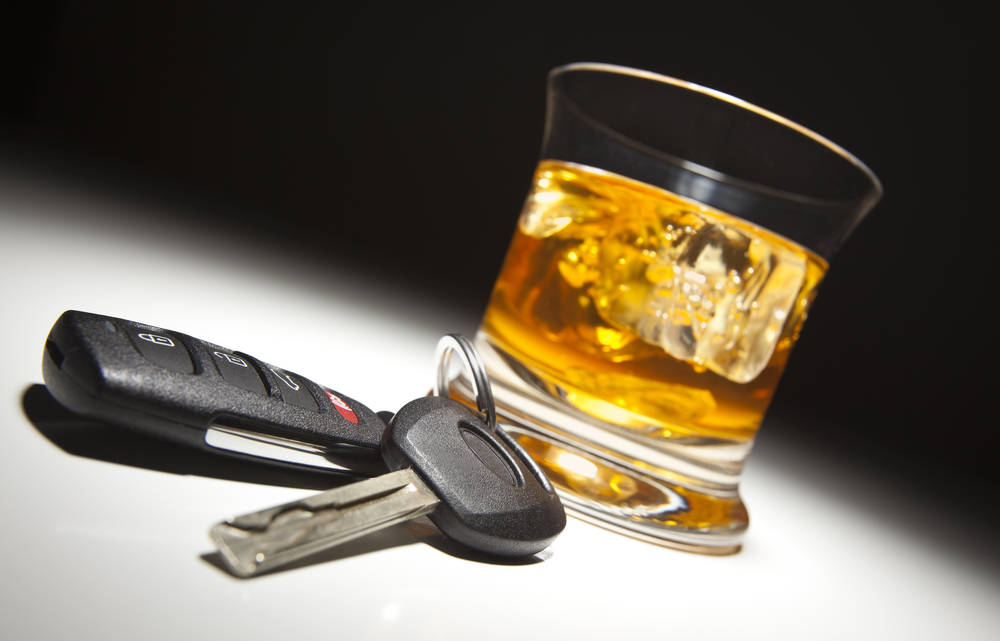
DUI Consequences & Defense Strategies
If you are charged with a DUI, a conviction can have serious consequences. However, an experienced Philadelphia DUI attorney can help you achieve the best possible outcome.
The consequences of a DUI in Pennsylvania will depend on a few circumstances. If it’s your first offense, and you have a blood alcohol content of 0.08% to 0.099%, a DUI is a misdemeanor. You can expect a fine of $300 to $1,500. You may also have probation, alcohol education requirements, and a license suspension of up to 6 months.
A subsequent offense carries a penalty of 5 days to 6 months in jail, a fine up to $2,500, and a 1-year license suspension. If you have more than 3 DUIs within 10 years, your license can be suspended for up to 2 years, and you may spend up to 10 years in prison. You’ll also pay fines that can total up to $20,000.
A skilled lawyer has many options for DUI defense strategies, depending on the circumstances of your case.
Illegal Stop or Arrest
An officer must have a reason to believe that you are breaking the law before stopping your vehicle. This may include driving recklessly or speeding. They can’t pull you over based on a hunch, or because you are leaving a bar or other establishment that serves alcohol.
You are protected by the Fourth Amendment, which protects you from “illegal searches and seizures”. It’s up to the state to prove that they had a legitimate reason for the stop. If the stop was illegal, then any evidence obtained from the stop can be suppressed. In most cases, this results in the case being thrown out due to lack of evidence.
Inaccurate or Invalid Field Sobriety Test
Field sobriety tests are notoriously inaccurate. They should be standardized, but not all officers or police departments use standardized field tests. For example, touching your finger to your nose or reciting the alphabet are not part of the standardized test.
There are multiple reasons some people fail the field sobriety tests that have nothing to do with being impaired. These include being overweight, elderly, or having a disability.
Challenging Alcohol Testing
Breathalyzers are often used at the scene. The amount of alcohol in your lungs is measured using a breathalyzer device. This is used to estimate the amount of alcohol in your blood. However, some factors can cause inaccurate breathalyzer readings. In the best of circumstances, these machines have a 10% margin of error.
Blood alcohol testing is more accurate, but these results can also be called into question. False positive results can occur due to diabetes, cold medicines, and certain herbal supplements. Improper storage can allow blood to ferment, which can also cause a false positive result.
No Attorney Present During the Investigation
In DUI cases, time is of the essence. If you’ve been read your Miranda rights, you know you have the right to an attorney. If you weren’t given the opportunity to contact an attorney, your case may be dismissed.
The state can delay your access to an attorney if it impedes their investigation. However, if you are denied, the state must prove that allowing you to consult with your attorney would impede their investigation.
No Evidence You Were Driving the Vehicle
The law requires you to be in “actual physical control of your vehicle” to be guilty of DUI. If you were simply sleeping it off in your vehicle, your attorney may claim that you weren’t in physical control or had no intention of driving under the influence.
DUI Attorneys Ready to Serve You
If you are charged with a DUI, you need the best criminal lawyer in Philadelphia. Contact us at Brennan Law Offices. We have been providing criminal defense for more than 30 years. We can help you avoid a conviction, or minimize its impact on your life.
Read More
0
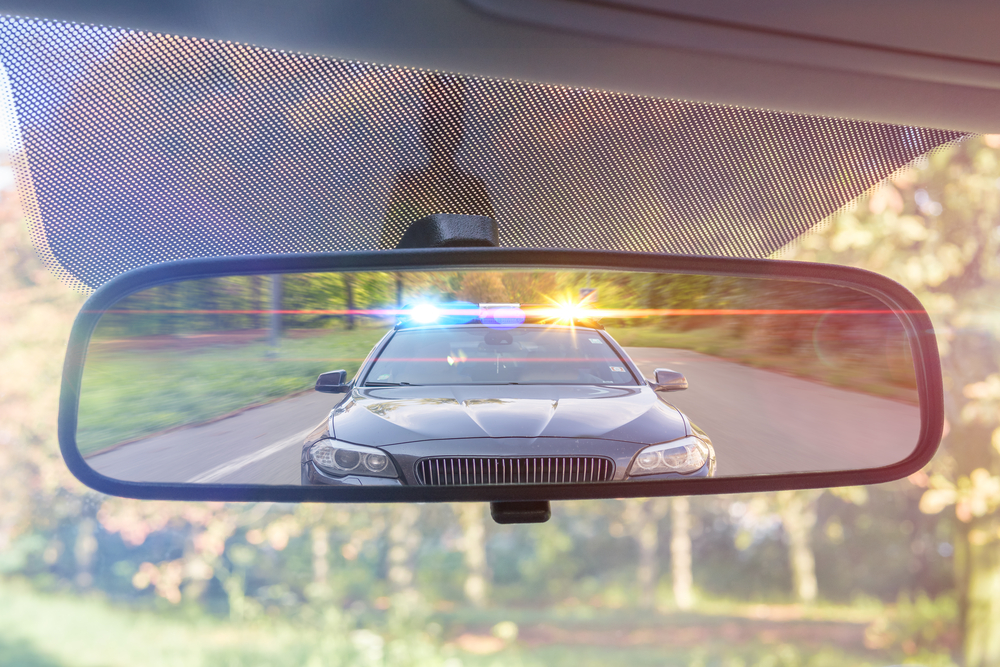
What Goes On My Driving Record?
In most every state, there are driving records kept on every person that holds a state-issued driver’s license. Each state’s Department of Transportation adds points to these records for particular moving violations, the number of which will vary depending on the severity of the offense. If a motorist accrues more than 5 points, action will be taken against him or her. These actions include:
- Sending a written letter asking the driver to take a special written test
- Asking the motorist to attend a requisite departmental hearing
- Suspending the driver’s license for 15 to 30 days
- Re-taking the on-road driving test
If a driving record reaches more than 10 points, the motorist’s driver’s license will be automatically suspended. The automatic suspension also comes into effect if a motorist drives under the influence, or has been clocked driving at a rate of 31 mph or more over the posted speed limit. The former offense requires a suspension of one year, while the latter only requires 15 days.
Luckily, departments will remove certain points from your driver’s license if you drive for a period of 12 consecutive months without a suspension or moving violation. Also, after having a clean, pointless record for one full year, your record will be treated as new as far as point accumulation going forward.
It is critically important to keep track of your driving record. It can affect you in many more ways than you would think. First of all, your insurance premium is determined by your driving record. Even one speeding ticket can affect insurance premium rates for up to 5 years.
Your driving record, of course, can affect your legal ability to drive. For example, DUIs or reckless driving charges can result in you getting your license suspended. But, you certainly need to keep track of your routine points. Points for minor offenses add up to suspensions, too, as was explained above.
Believe it or not, certain states do not allow driving records to be expunged. As a matter of fact, in accordance with expungement laws, only the governor of the state has the authority to have any criminal conviction expunged from your record, but that does not include driving histories, which, in accordance with further statutes, cannot be cleared. This includes violations of all scopes. So, while your points will disappear with time and better driving habits, the offenses that led to them will remain on file with the state.
In conclusion, it always pays to keep your nose clean when driving. If you know you have had too much to drink, there is no shame in that. Ask a friend to drive you home, call a cab or contact a rideshare company. You won’t need to speed if you leave plenty of time to get ready for work or other obligations. You don’t want your permanent driving record to be soiled.
However, if you have made a driving mistake and need help navigating the legal system, call your local Philadelphia DUI attorney. Our attorneys will represent your interests and give you the advice you need.
Read More
0
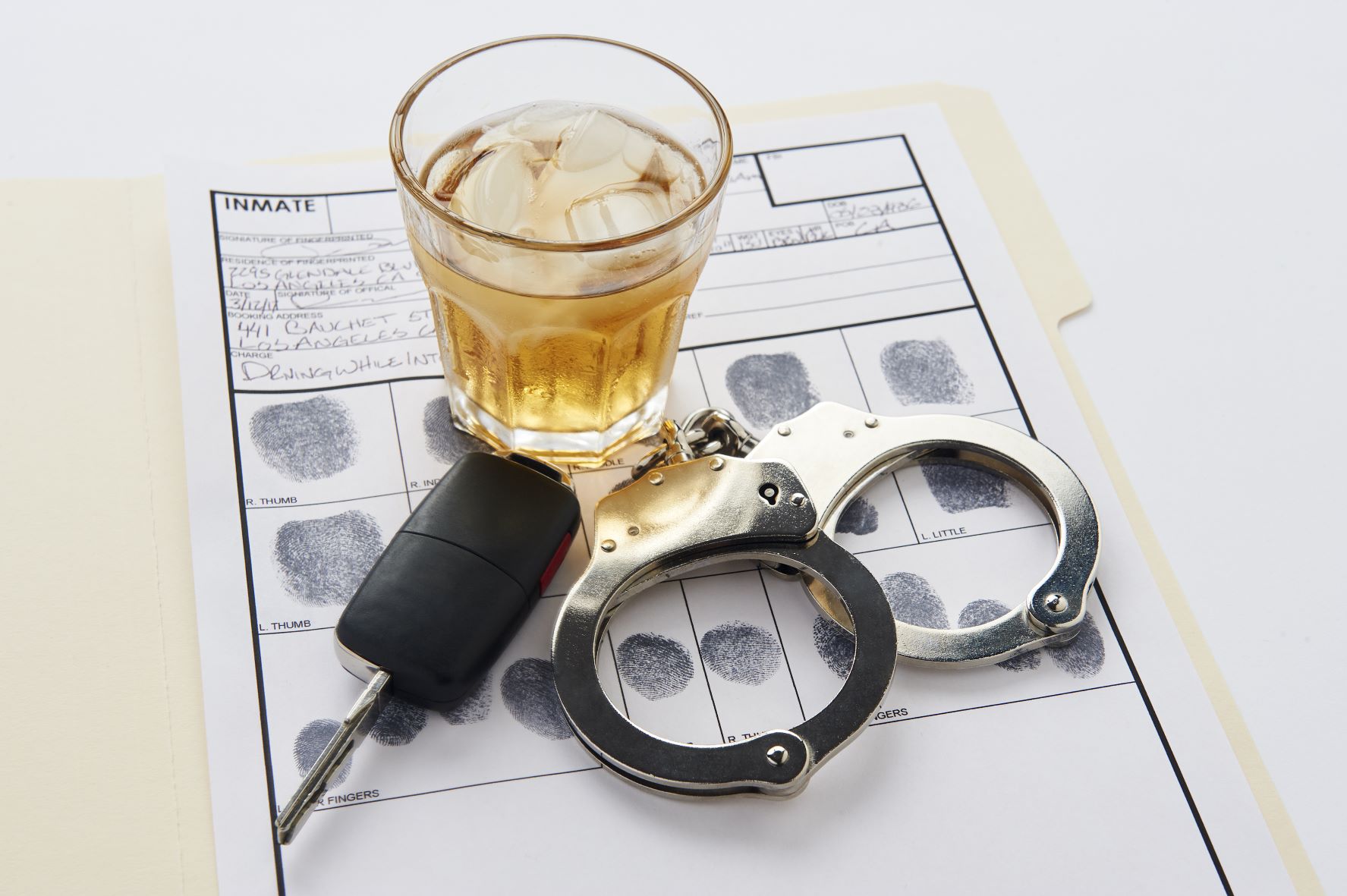
What Goes On My Driving Record? How Can I Get It Expunged?
In the United States, millions of tickets are issued each year for traffic violations. It’s not easy to erase violations from your record, especially if you record serious cases like driving under the influence (DUI) or a hit-and-run accident. But in other less severe cases, it is possible to clear your driving record.
What is a Driving Record?
A driving record is made up of all the times you were in an accident, were convicted of a moving violation, or had your license suspended. In most cases, you can get your driving record from the DMV, either in person or in writing. In some states, you can get it online.
When it comes to driving history, your auto insurance provider can easily see your past driving history. This data helps you determine your rates. For example, if you have a poor driving record, your insurance premiums may go up.
What Goes On A Driving Record?
You can expect to find any of these things on your driving record:
- Moving violations
- Non-moving violations
- Suspended license
- Completion of traffic school
- Restricted driving (daylight only)
- Accidents resulting in citations
Violation Removals
Most violations generally have a set period after which they are removed from your driving record. For example, there is generally nothing you can do to remove a DUI from your driving record (although you can remove it from your criminal history).
Court Fight Citations
You may want to retain an attorney for this, depending on the severity of the charge and the number of points at risk. Keeping your driving record clean requires that you avoid:
- A car accident.
- Any traffic violation.
- Has your license been suspended or revoked?
Remember that your driving record is not only with you from the day you receive your first driver’s license, but until you stop driving. It also has a major impact on various aspects of your life. Therefore, you must keep it as clean as possible.
The Recommendations
Here are some suggestions to help you get a clean driving record once again.
You should first get a copy of your driving record, so you know exactly what it contains. Go to the DMV office or send an application by mail and be prepared to pay a price for the service. Once you have the registry and see what you need to clean up, you can take the necessary steps to make that happen.
Knowing what’s on your current record will help guide you to the right next steps. There are a few ways you can get a copy of your driving record, including:
- Go directly to your state agency (DMV).
- Order online through a third-party provider.
- Ask your insurance provider.
In most cases, your state’s DMV will be the best source for the most current and accurate registration. Once you know what’s on your driving record, you can begin to piece together if anything can be done to erase it. Unfortunately, certain things cannot be deleted.
Enroll in Driving Course
If you receive a ticket for a moving violation, many states offer some type of reliable driving course as a way to reduce points on your driving record. Check with your state agency to see if you’re eligible to have points deducted when you enroll in a driving course.
Contact an Attorney
If you want to clear your driving record, contact one of the best Philadelphia expungement lawyers to tell you how it affects your future options and discuss a strategy for legal representation.
Read More
0

How Can I Get An Underage Drinking Charge Expunged?
Having a history of criminal activity on your record can jeopardize future opportunities. Many people don’t realize that even something as minor as an underage drinking charge can show up on a background check and limit your ability to get a job or be accepted for a visa.
Luckily, there’s a process called expungement, in which you can request the removal of this unwanted record from your history. However, the law varies in each state, and a need for reputable Philadelphia expungement lawyers. Let’s uncover every detail you need to know about the expungement of an underage drinking charge.
What Is Expungement?
In simple terms, expungement is the legal process of deleting or destroying your criminal record. This process aims to give opportunities to people who committed a crime in the past. As this process permanently erases your criminal charge from your history, it follows strict guidelines, and only a few cases are allowed for expungement in Pennsylvania.
Cases Allowed For Expungement In Pennsylvania
In Pennsylvania, several types of cases may qualify for expungement. Non-conviction cases involve situations where you were charged with a crime but not convicted; these records can be fully expunged if you have not committed any other misdemeanor or felony offenses. Summary offenses, such as underage drinking, disorderly conduct, or public drunkenness, may be eligible for expungement once fines are paid. You may also qualify if you have successfully completed a special program like Accelerated Rehabilitative Disposition (ARD), a pre-trial intervention offered to first-time, non-violent offenders. Additionally, individuals aged 70 or older who have not been convicted of any crimes for the past ten years may be eligible for expungement.
Expungement Of Underage Drinking Charge In Pennsylvania
If you’ve been charged with underage drinking, expungement is often possible. Under 18 Pa.C.S.A. Sec. 9122(a)(3), you can file for an expungement if you have paid all fines and tickets, completed any driver’s license suspension, and submitted a petition to expunge at the Court of Common Pleas. The process can be time-consuming, often taking several months to clear your records, and approval is not guaranteed. Because of these challenges, it’s wise to work with an experienced expungement attorney who can guide you through each step, represent you in court, and improve your chances of success.
Talk To A Philadelphia Criminal Defense Lawyer
Our criminal defense lawyer at Brennan Law Offices has more than two decades of criminal defense experience helping clients get their records expunged. We also have an experienced DUI lawyer in Philadelphia if needed.
If you have been charged with an underage drinking offense and it’s having a detrimental effect on your life, it’s time you take action. Call our criminal defense attorney at 215-568-1400 to schedule your free consultation.
Read More
0
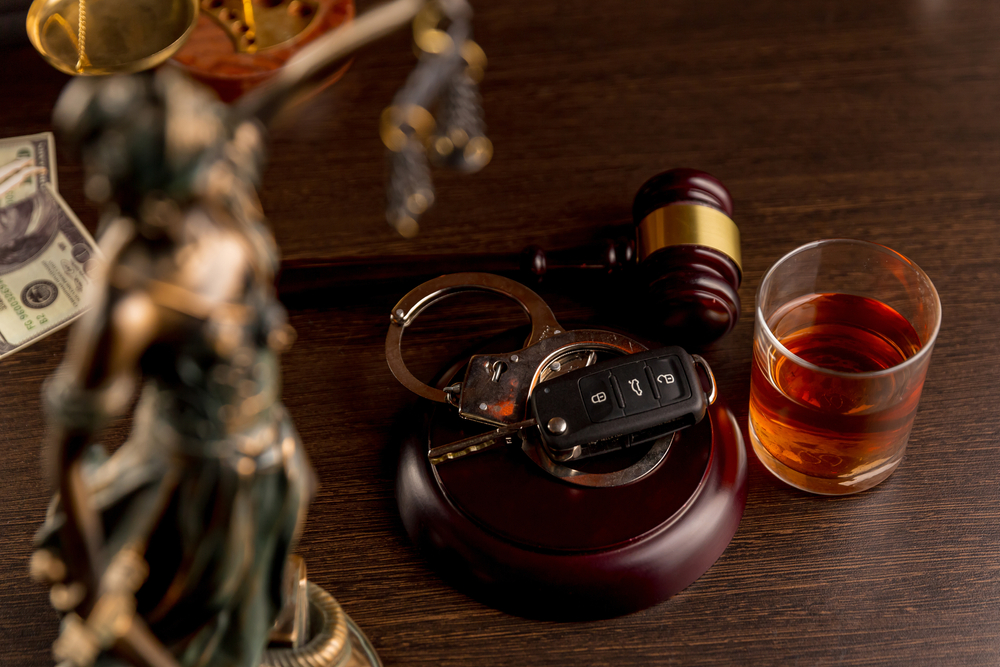
What are The Consequences While Driving Under Different Influences?
Driving under the influence can put you in different types of danger. For one, there are physical consequences where you can suffer paralysis, brain damage, and even death. There are also mental consequences like being filled with guilt, especially when you accidentally kill someone. However, another consequence can have a huge impact on your life, and it comes in the form of criminal offenses.
There are different reasons why a person can be driving under the influence. It can either be because of the influence of alcohol or drugs. But whichever the reason is, it can still put you to different sorts of consequences. We can also provide a drug lawyer in Philadelphia.
Driving Under The Influence – Understanding The Difference
Driving under the influence (DUI) or impaired driving can be caused by two different things; it’s either because of alcohol or drugs. But no matter which of the two is the cause of a crime, they are still crimes that are punishable by laws. When a law enforcement officer thinks that you are too impaired to drive, they can accuse you of a DUI.
Consequences Of Driving Under The Influence
Whether you are accused of a DUI or a DWI, the consequences of a conviction will highly depend on the severity of your case. You will be investigated if you have committed a first-, second-, or third-degree crime that will lead you to a conviction. A blood alcohol concentration (BAC) test will also be made at the time of your arrest to see the level of your influence. There are three levels of BAC:
- General impairment – 0.8 – 0.99%
- High BAC – 0.10 – 0.159%
- Highest BAC – 0.16% and above
If your blood alcohol content is higher than 0.8% you are legally considered impaired in the United States. Even if your alcohol content is only at 0.8% or below, if an officer thinks you are unable to drive, you will still be charged. This can still apply to anyone that is intoxicated because you are considered as not driving safely and putting others at risk. There are the most common punishments for a conviction under DUI or DWI:
- Imprisonment
- Suspension or revocation of driver’s license
- Confiscation of vehicle license plate
- Vehicle impoundment
- Ignition interlock device restrictions
- Alcohol abuse violations
- Monitored sobriety
- Mandatory alcohol abuse treatment program
- Rehabilitation
The effects of alcohol and drugs can affect a driver’s decision-making skills, as well as their coordination. This is mostly the main reason why driving under the influence can cause many accidents.
The Best DUI Attorneys
A DUI charge is considered a serious crime. It can affect your life in so many ways. That’s why if you’re facing a DUI charge, you will need the help of the best DUI lawyers to help you defend your case. At Brennan Law Offices, we have a team of lawyers that will help ensure you are given the best DUI results. If you need a Philadelphia DUI attorney, get in touch with us today at Brennan Law Offices.
Read More
0

Why DUIs Spike On Xmas Eve And What To Do About It
Whether it’s to get to grandma’s house or meet friends, more people are on the roads during Christmas Eve. With the holidays, holiday parties and general celebrations are in full swing. With that comes more drinking and driving. Drunk driving on Christmas Eve is a problem that has been increasing in recent years.
Tips on How To Avoid DUIs on Xmas Eve
Many people drink alcohol heavily on Xmas Eve because of holiday drink specials. Hence, many people get behind the wheel after having one or two too many drinks. We should not drink and drive while thinking we can handle it. These tips will help keep us safe and away from any road accidents while driving on Christmas Eve:
- Avoid drinking too much before leaving your house/event
- Make sure to get a designated driver or take a cab home
- Don’t try to handle your car keys
Xmas Eve DUI Laws
Alcohol consumption during Christmas Eve is a major issue for police departments all over the country. DUI checkpoints happen year-round, but they are particularly common during the holidays because many people will be out celebrating with alcohol.
The laws vary from state to state, but most have laws against drunk driving on Christmas Eve and New Year’s Eve, even if it falls on a Saturday or Sunday. Any driver under 21 cannot drink at all while driving or face hefty fines or even jail time if they get caught.
Knowledge on DUI Tests
In the United States, you are considered to be impaired if your blood alcohol content is above .08%. If the police suspect you have been drinking and driving, they will request a breathalyzer test or a sobriety test. You can refuse to take these tests, but it will likely lead to harsher penalties.
If you drink moderately and responsibly, it should not be a problem. However, if you drink a lot in a short period or mix drinks with energy drinks or other substances, your risk of DUI increases significantly.
If you are facing DUI charges, you should contact a DUI lawyer in Philadelphia from Brennan Law Offices. Our criminal law attorneys in Philadelphia have adequate experience in handling DUI cases.
A DUI on XMAS Eve is not worth the risk
There are many reasons why you should avoid driving under the influence. You risk killing someone or hurting yourself. You could also lose your livelihood. You could even get injured or face jail time.
Don’t take the risk, don’t drink and drive.
Read More
0

by William J. BrennanNovember 8, 2021 Criminal Defense, Drug Charges, Drunk Driving Charges, Sexual Assault0 comments
What Is A Strict Liability Crime?
A strict liability crime is one that is classified as a criminal activity regardless of what someone’s intentions were. Even if you did not have criminal intentions, you can still be charged with a crime. You need to hire a capable criminal defense attorney if you have been accused of a strict liability crime.
What Are Examples of A Strict Liability Crime?
Statutory Rape
This is a crime that occurs when a person has sex with an underage person. You could be charged with a crime even if you were unaware of the fact the person was underage. It also does not matter if the underage person consented to the act. Additionally, it is possible for you to be charged with a crime if you intended to have sex with the underage person, but you did not carry out the actual act.
You Sell Alcohol to an Underage Person
It is illegal for anyone to sell alcohol to someone who is under the age of 21. It doesn’t matter if you believed the person was at least 21-years-old.
Traffic Offenses
The vast majority of traffic offenses are classified as strict liability crimes. If you are caught speeding, then you may be charged with a strict liability crime. It doesn’t matter if you did not believe that you went over the speed limit.
Possible Defenses
The reason that you should hire a criminal defense attorney in PA is because there are many possible defenses that you can use. You may be able to use one of the following defenses.
Contributory Negligence
Your attorney can argue that the plaintiff is partially responsible for the crime. The plaintiff may still be able to recover some damages.
Assumption of Risk
There are some issues that involve consent. If the plaintiff has engaged in a risky activity, then they may not be able to recover any damages.
Abuse or Misuse
It is common for people to file claims if they have been hurt by using a product. It is possible for people to recover damages from using a defective product. However, if the person intentionally misused or abused a product, then this can be used as a defense.
Comparative Fault
Comparative fault raises the question of how much the plaintiff contributed to their own issue. The plaintiff can get part of their claim reduced if they contributed to the crime.
Read More
0
